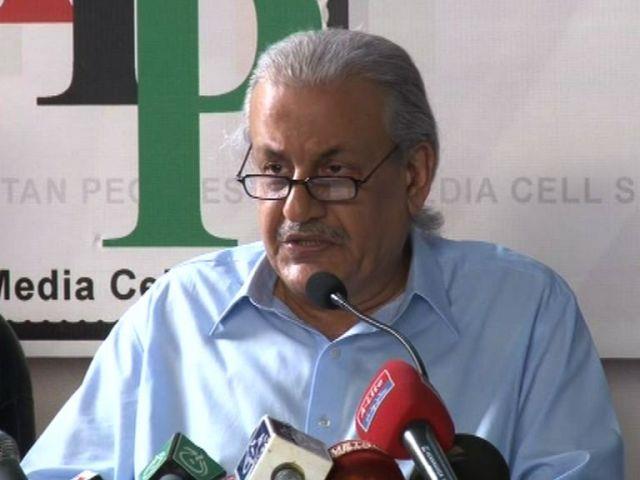
Cybercrimes bill unlikely to pass Pakistan Senate test
ISLAMABAD: Pakistan government’s proposed cybercrime legislation has met a stumbling block in the opposition-dominated upper house of parliament. Senate Chairman Raza Rabbani (pictured) has vaguely told the government the controversial bill will not be passed unless it is made acceptable to all stakeholders.
Expressing reservations over the ‘very controversial’ draft of the Prevention of Electronic Crimes Bill 2015 the Senate chairman last week asked the government to initiate fresh consultations while calling for the formation of a parliamentary committee to develop consensus on it.
He also suggested the government withdraw the earlier draft of the bill presented by the National Assembly Standing Committee on Information Technology as many lawmakers and civil society activists have reservations on the bill.
Rabbani was speaking during the Senate session on Wednesday after Interior Minister Chaudhry Nisar Ali Khan offered to tone down the bill to address the ‘genuine concerns’ of the opposition.
While briefing the upper house on the performance of the 20-point National Action Plan Nisar requested the opposition to support the government’s cybercrime legislation for monitoring online activities of suspected militants. The bill he added has been delayed already and is still pending in parliament for final approval.
The Senate chairman however disagreed. He suggested a parliamentary committee be constituted and all stakeholders called for consultations to iron out differences.
When Information Technology Minister Anusha Rehman tried to speak Rabbani interjected: “Please sit down. You will never get it [the bill] through.”
The proposed piece of legislation has sparked a controversy since its initiation.
The National Assembly Standing Committee on IT which is headed by the prime minister’s son-in-law Captain (retd) Muhammad Safdar had presented its report during the current session of the lower house. Despite the opposition’s protest the National Assembly accepted the report for debate.
Earlier Speaker Ayaz Sadiq had referred back this bill to the committee with the direction to conduct a public hearing to make the legislation acceptable.
The committee however skipped the open debate and deliberated upon the bill behind closed doors many times. The panel then presented the report to the lower house without addressing the stakeholders’ concerns.
The bill presented in the National Assembly also contained dissenting notes from opposition lawmakers especially from the Pakistan Peoples Party Pakistan Tehreek-e-Insaf and Muttahida Qaumi Movement.
Internews

Legal Disclaimer:
MENAFN provides the
information “as is” without warranty of any kind. We do not accept
any responsibility or liability for the accuracy, content, images,
videos, licenses, completeness, legality, or reliability of the information
contained in this article. If you have any complaints or copyright
issues related to this article, kindly contact the provider above.


















Comments
No comment